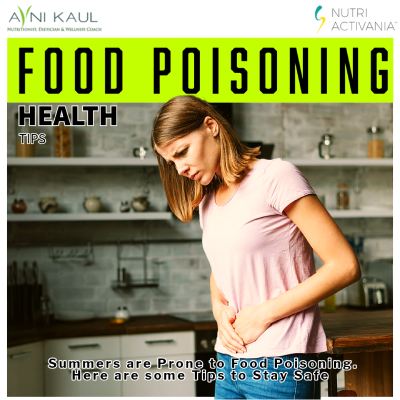
It is a peak summer time in India, and food poisoning during this period is common. Leading dietician for gastrointestinal health in Delhi, Avni Kaul, provides some insights on this topic of food poisoning during summer.
Food poisoning encompasses most illnesses caused by consuming contaminated food. Common symptoms include nausea, fever, weakness, vomiting, and diarrhea. While food poisoning can be uncomfortable, it is often not serious, and most people recover within a few days without requiring medical treatment.
What causes food poisoning?
Food poisoning occurs when we consume spoiled or contaminated food, leading to various symptoms. Contamination is a natural process often caused by bacteria, viruses, or parasites. These pathogens make food unsafe to eat and can cause food poisoning when ingested. Poor hygiene during food preparation is a common cause of food contamination.
Yes, we are more likely to consume contaminated food in the summer. The hot and often humid weather creates an ideal environment for pathogens to infest our food. Additionally, the increase in body temperature can slow down our digestive system, making us more susceptible to foodborne illnesses during the summer months.
Unlike other common summer illnesses, food poisoning can be entirely avoided by taking some preventive steps. Here are some simple measures to help you stay safe:
Avni Kaul is Founder of Nutriactivania with Masters Degree in Food and Nutrition from University of Delhi and is also a Certified Diabetes Educator from Project Hope and International Diabetes Federation. She is a Leicester Mammas Ambassador trained in Lactation Counselling with NHS United Kingdom. Mammas support pregnant and new mothers and their families. Specializations of Avni Kaul Include Infant and Young Child Feeding Practises, Pre and Post natal diets, Fat loss, Muscle Gain and Holistic Health and Nutrition